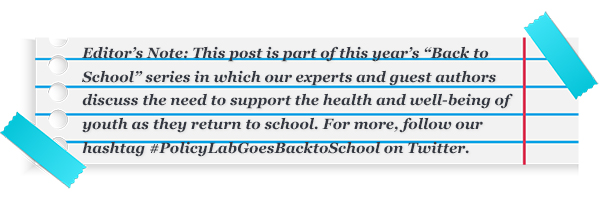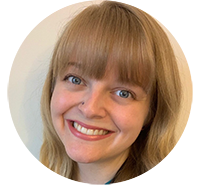Training Pediatric Researchers to Include All Voices in Health Research


For research to be generalizable and equitable, it’s important to include all voices. However, traditional education for pediatric, child psychology, nursing or maternal-child health research trainees does not routinely include guidance on working across language differences.
This summer, PolicyLab and CHOP team members hosted an incredible group of health researchers from across the country for our third annual Short Course on Multilingual Approaches to Research Studies (MARS), a program designed to equip researchers with skills to design and manage protocols that are inclusive of children and families who speak languages other than English.
With back-to-school season kicking off, we’re reflecting on the importance of continuing education for child health researchers by connecting with MARS alumni, asking them about their efforts to include multilingual voices in their research.
You can hear from more alumni in this 2023 blog post.

Jordan Wood is a clinical research project manager focused on inclusion and representation in clinical research and interdisciplinary approaches to equity-focused projects.
Why is it important for researchers to engage in trainings like MARS, or continuing education in general?
Researchers should engage in trainings like MARS because adding to an equity-oriented research toolkit and employing these methods advances the rigor and the impact of the science. Equity-oriented continuing education that prioritizes the lived experiences of patients, families, and communities from all intersectional identities, regardless of the investment needed to do so, makes our science better and have a greater, equitable impact.
How are you incorporating what you’ve learned at MARS into your current research?
Our team is developing educational materials for patients and families of children with asthma, including those who speak languages other than English. In our interviews with community health workers and providers who care for these patients, we are learning how language barriers pose challenges for these families and their care. We plan to incorporate the concepts from MARS (e.g., cultural translation) and what we learn from these providers into our materials.

Anyun Chatterjee is a clinical research coordinator focused on qualitative methods and topics in substance use and maternal/child health.
Why is it important for researchers to engage in trainings like MARS, or continuing education in general?
The two main benefits of continuing education are networking and keeping yourself in the “learner” state of mind. Connecting with researchers from around the country is definitely an enriching experience, and it’s useful to hear that other people are dealing with the same roadblocks or research logistics problems. It’s also really valuable to have the dedicated time to just focus on expanding your knowledge base. Research is a career where we’re always trying to figure out things that haven’t been fully described yet, so it wouldn’t be great if we got intellectually complacent. The world is changing all the time too, and courses like MARS are a great way to get exposure to modern research agendas that you might not have thought about yet.
How are you incorporating what you’ve learned at MARS into your current research?
Somewhat fortuitously, a cardiac research team with a multilingual study design partnered with [CHOP’s Qualitative Research Core] right around the time I attended the MARS course, so I was able to jump right into helping with the budget, timeline, IRB and interview guides. I got pretty lucky there, as having to apply what I learned so quickly is definitely helping me internalize the lessons from MARS.

Jenna Kiely is a clinical research coordinator focused on evaluation of interventions aimed at strengthening parent-child relationships and enhancing child abuse prevention and screening.
How does what you learned at MARS contribute to your understanding of equity in health research?
Research is a two-way relationship. Researchers should include communities that they want to recruit from early on in the research process and develop questions that are of interest and beneficial to potential participants. Doing so can create trust, stronger engagement, and make the project more reflective of what the community may be looking for overall.
What’s an important lesson learned that you would share with other health researchers seeking to include families who speak languages other than English?
Documenting any decisions made about translations, or dialectical decisions to refer to will save a lot of time and energy, especially if working with multiple translators!

Ahtish Arputhan is a clinical research coordinator focused on Down syndrome research and improving inclusivity in community engagement efforts.
How are you incorporating what you’ve learned at MARS into your current research?
Currently, my work involves interviewing Spanish speaking families who have children with Down syndrome to hear about their medical related experiences. Children with Down syndrome are historically neglected in research and being Spanish-speaking would make these families much more likely to be excluded. MARS has given me the tools to effectively engage these families.
Why is it important for researchers to engage in trainings like MARS, or continuing education in general?
One of the hallmarks of research endeavors is generalizability. As researchers, we can never truly claim that our research helps as many people as possible, unless we make efforts to include as many people as we can. Engaging in trainings like MARS allows us to do our mission effectively.
Since MARS wrapped up, we’ve continued to hear from alumni who revised grant submissions to strengthen multilingual inclusion and others on how they’re collaborating with their MARS peers. We were honored to host Dr. Amy Olen for a webinar in June during which she shared guidance for applying plain language in multilingual research.
We’re also thrilled to celebrate the inclusion of MARS alumnae Diana Ceballos Robles and Jenny Ruiz on National Hispanic Medical Association and National Hispanic Health Foundation’s list of outstanding health professionals.
We plan to host our fourth cohort of MARS trainees in Philadelphia in May 2025. Applications will open in October. To learn more, sign up for our listserv or follow PolicyLab on social media.
